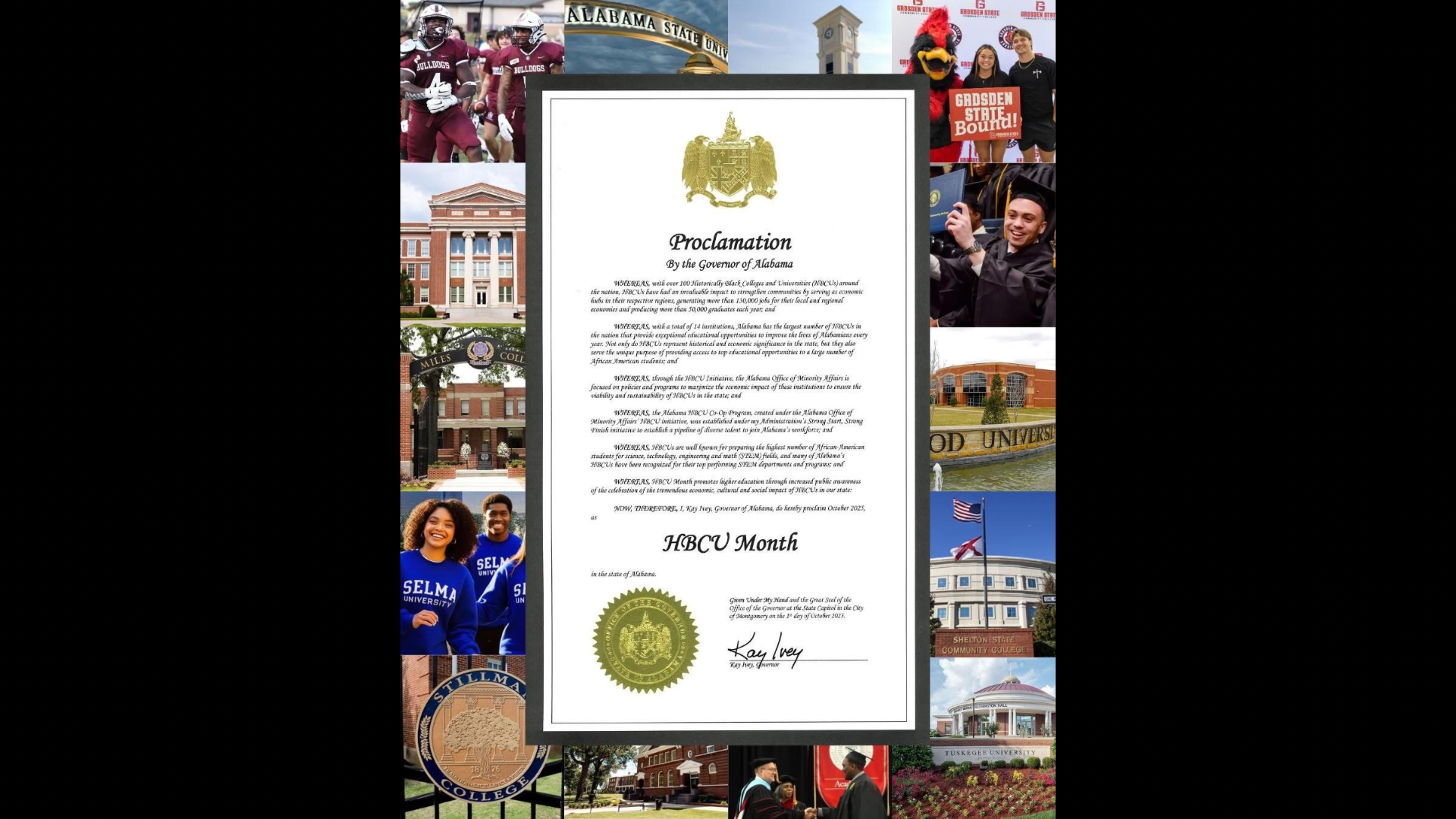Alabama Governor Kay Ivey has officially declared October as “HBCU Month” in Alabama, recognizing the state’s 14 Historically Black Colleges and Universities and their lasting contributions to education, culture, and economic development. This marks the fourth consecutive year Ivey has issued the proclamation. (WTVY) “Alabama is proud to be home to more HBCUs than any other state in the country,” Ivey said in a statement shared by the Governor’s Office. “These historic institutions have shaped leaders, innovators, and changemakers who continue to strengthen our communities.”
Highlighting Alabama’s HBCU Legacy
Alabama’s HBCUs include institutions such as Alabama State University, Tuskegee University, Stillman College, Miles College, and Oakwood University — among others that have educated generations of Black scholars and professionals. The proclamation celebrates the legacy of these schools as cornerstones of access and excellence in higher education. It also underscores their ongoing role in advancing workforce development, economic growth, and cultural heritage within the state.

https://governor.alabama.gov/assets/2022/09/HBCU-Month-Proclamation.pdf
Focus on Economic Impact and Opportunity
Governor Ivey’s announcement highlights the work of the Alabama Office of Minority Affairs’ HBCU Initiative and the Alabama HBCU Co-Op Program, which aim to expand opportunities for students by connecting them with internships and workforce pipelines. “These programs ensure that our students not only receive a quality education but also gain meaningful career experience that keeps Alabama competitive,” Ivey said. According to a UNCF economic impact study, Alabama’s HBCUs collectively generate hundreds of millions of dollars in economic activity each year and support thousands of jobs statewide.
A Continued Commitment to Recognition
By declaring October as HBCU Month for the fourth straight year, Ivey and state leaders signal a continued commitment to recognizing the historical and present-day value of HBCUs. Community members and school leaders see this recognition as more than symbolic. It provides a platform to advocate for increased state support, scholarships, and equitable funding for the institutions that have historically served underrepresented students.
Reactions from the HBCU Community
Leaders at Alabama’s HBCUs praised the proclamation, noting the importance of having statewide recognition. Officials from Alabama State University called the move “a celebration of our students’ excellence and the promise of future generations.” Advocates also point to the need for translating recognition into policy support, urging lawmakers to pair proclamations with resources that strengthen facilities, academic programs, and student services.

